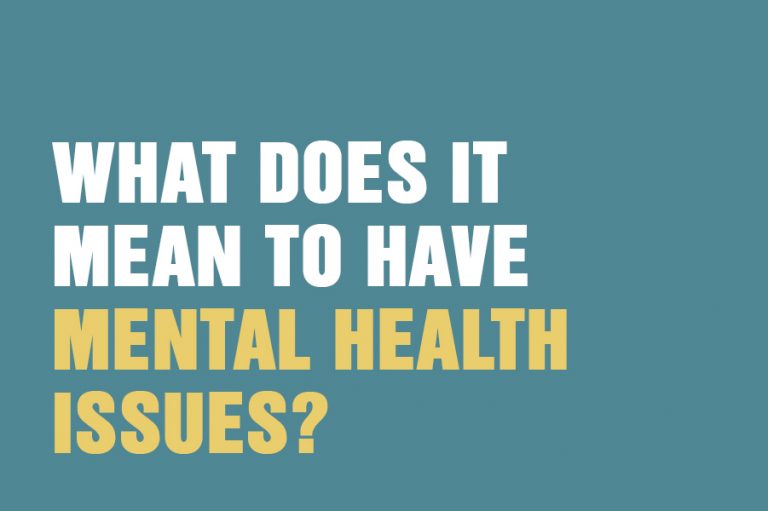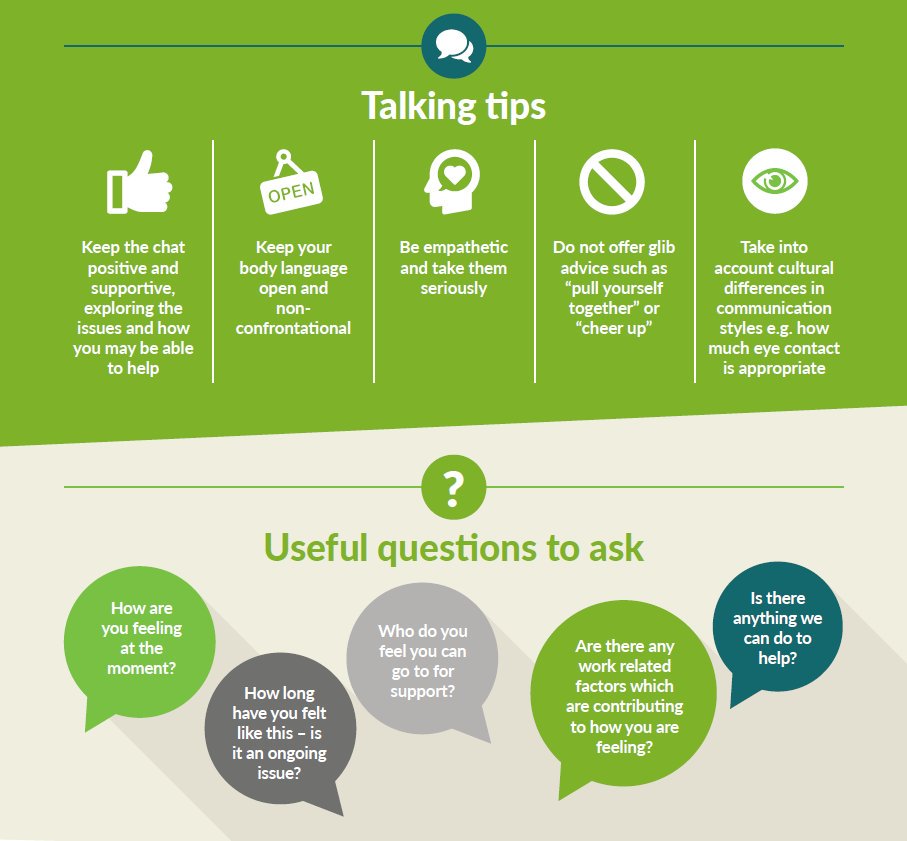About 5 minutes of aerobic workout can start to promote anti-anxiety impacts. Stress and stress and anxiety are a normal part of life, but stress and anxiety disorders, which impact 40 million adults, are the most common psychiatric illnesses in the U.S. The advantages of exercise may well extend beyond stress relief to improving anxiety and associated disorders.
Some studies reveal that workout can work quickly to raise depressed state of mind in lots of individuals. Although the impacts might be momentary, they demonstrate that a vigorous walk or other basic activity can provide several hours of relief, comparable to taking an aspirin for a headache. Science has actually also offered some proof that physically active people have lower rates of anxiety and depression than inactive individuals - how drug use affects mental health.
In one research study, researchers discovered that those who got routine vigorous exercise were 25 percent less most likely to establish anxiety or an anxiety disorder over the next five years. According to some studies, regular workout works as well as medication for some people to decrease symptoms of anxiety and depression, and the results can be long-term.
Although workout has a positive result for the majority of people, some current research studies show that for some, exercise might not have a favorable result on anxiety or depression or might not make a strong effect on long-lasting mental health. Like all forms of therapy, the result can differ: Some individuals may react favorably, others might find it does not improve their mood much, and some may experience only a modest short-term advantage.
Workout for Mood and Anxiety, Proven Strategies for Overcoming Drug Detox Anxiety and Enhancing Wellness, by Michael W. Otto, PhD, and Jasper A.J. Smits, PhD (Oxford University Press, 2011) The most current federal guidelines for grownups recommend at least 2 hours of moderate-intensity physical activity (e.g. brisk walking) weekly, 1 hours of a vigorous-intensity activity (such as jogging or swimming laps), or a combination of the two.
If not, here are ideas to get you started. 5 X 30: Jog, walk, bike, or dance 3 to five times a week for thirty minutes. Set small day-to-day objectives and goal for everyday consistency instead of best exercises. It's better to stroll every day for 15-20 minutes than to wait until the weekend for a three-hour physical fitness marathon.
How Loneliness Affects Mental Health Things To Know Before You Get This
Discover types of exercise that are enjoyable or pleasurable. Extroverted people often like classes and group activities. Individuals who are more shy typically choose solo pursuits. Distract yourself with an iPod or other portable media player to download audiobooks, podcasts, or music. Many individuals find it's more fun to work out while listening to something they enjoy.
Be client when you start a brand-new workout program. what to do when mental health affects work. Many inactive individuals need about four to 8 weeks to feel collaborated and sufficiently fit so that exercise feels easier. Gown in layers. Workout in layers that you can remove as you start to sweat and put back on as required.
Make sure your extremities aren warm and use gloves, socks, and headbands to prevent frostbite. Pay attention to weather conditions and wind chill. Rain and wind can make you much more vulnerable to the results of the cold. If the temperature is below no degrees and the wind chill is severe, consider taking a break or finding an indoor activity.
It gets dark previously in the winter season, so be sure Additional resources to wear reflective clothing. Use shoes with adequate traction to prevent falls in snow or ice. Keep in mind sunscreen. It's just as simple to get burned in the winter as in summer season, so don't forget the SPF. Head into the wind.
Drink a lot of fluids. It can be more difficult to see the signs of dehydration in cold weather, so drink fluids before, during, and after a workout, even if you're not thirsty. Know the indications of frostbite and hypothermia - how art affects mental health. Know the signs and get assist immediately to prevent frostbite and hypothermia.
With the needs of college life, you may think you do not have whenever left for exercise in your schedule. Or possibly you dislike to exercise due to the fact that you see it as a task or boring activity. However there are lots of ways to be active and methods to fit workout into your day.
The 9-Second Trick For How The Public Education System Affects Mental Health
Exercise promotes chemicals in the brain that enhance your mood and make you more unwinded. Particularly, the brain launches feel-good chemicals called endorphins throughout the body. Physical activity minimizes stress and anxiety and depressed mood, and improves self-confidence. College requires a fair amount of energy and lots of mental capacity to keep up with classes and other activities.
This indicates you can focus better and think clearly. Plus, due to the fact that exercise helps your lungs and heart, you have more energy to http://jeffreyhlxp487.wpsuo.com/the-facts-about-how-can-stress-affect-your-mental-health-uncovered do other things. Constant exercise helps fend off high blood pressure and lowers the danger for type 2 diabetes, some types of cancers, osteoporosis, strokes and cardiovascular disease.
Physical activity reduces the quantity of tension hormones your body releases, so you feel calmer total. Plus, some workout slows down both high blood pressure and heart rate. Exercise helps you go to sleep faster and enhances the quality of your slumber. However, make sure you've stopped working out a minimum of 3 hours before bedtime so you aren't too alert and energized when it's time for bed.
While the physical health advantages of workout are frequently talked about, the psychological benefits are frequently overlooked. However research study shows exercise can be rather beneficial for psychological health. Exercise may assist ward off psychological illness before they begin. Additionally, research shows exercise can enhance the signs of many existing mental disorders.
Exercise can ease a number of the signs of depression, such as fatigue, tension, anger, and reduced vigor. For individuals with panic attack, PTSD, and other anxiety-related conditions, exercise can be a proactive method to release bottled-up tension and decrease feelings of worry and concern. Workout also decreases level of sensitivity to the body's reaction to anxiety, along with decreases the strength and frequency of panic attacks in some cases.
Exercise can likewise be utilized to improve wellness in individuals who already feel psychologically healthy. Increased exercise has actually been discovered to enhance mood, enhance energy levels, and promote quality sleep. There are several factors why exercise can be helpful for mental wellness: Workout reduces stress hormonal agents like cortisol.
How Music Affects Mental Health for Beginners

Exercise can take your mind off of your issues and either redirect it on the activity at hand or get you into a zen-like state. Workout can help you slim down, tone your body, and maintain a healthy glow and a smile. You may feel a subtle but significant boost in your state of mind as your clothes look more flattering and you predict an aura of increased strength.
So whether you sign up with a workout class or you play softball in a league, working out with others can give you a double-dose of tension relief. While stress can cause disease, health problem can also cause tension. Improving your general health and durability with workout can conserve you a good deal of tension in the brief run (by strengthening your immunity to colds, the influenza, and other small diseases) and the long run (by assisting you remain much healthier longer, and enjoy life more due to the fact that of it). Physical activity might be connected to lower physiological reactivity toward stress.
